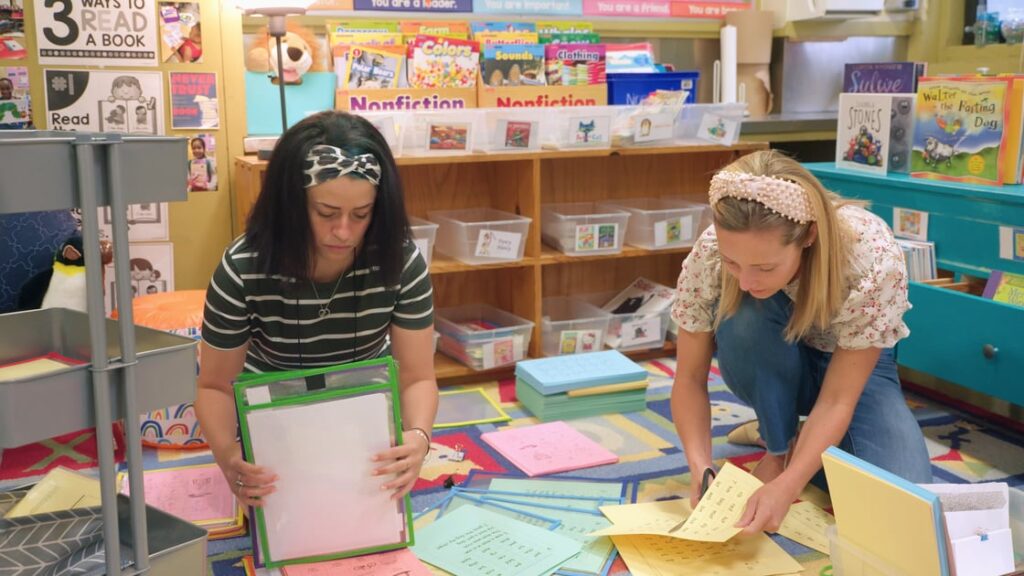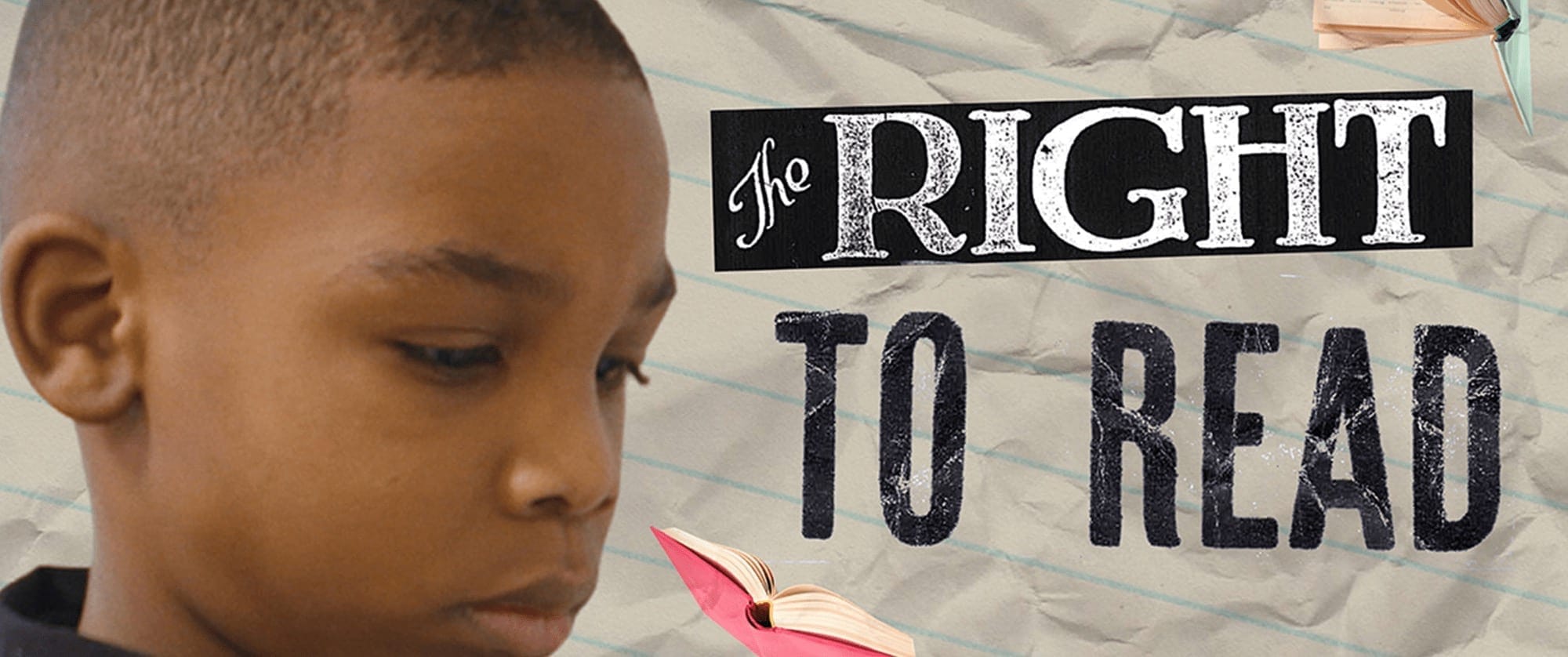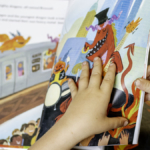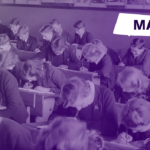The Right to Read documentary has become a must-watch film for teachers, school administrators, parents and just about anyone interested in guaranteeing children have access to the foundational skills instruction they need to become lifetime readers.
In the documentary film, Executive Producer LeVar Burton shares the inspirational story of how a struggling new teacher taught kids to read in the lowest performing public school in Oakland. That teacher was coached by Ignite Reading’s CEO, Jessica Sliwerski!
In this interview with Jess, learn the behind-the-scenes story of how she became connected to this teacher and how their approach to teaching students during the pandemic inspired the founding of Ignite Reading.
The Right to Read Documentary Film — A Quick Look
Before we dive right into the interview, we realize it might be helpful to share a bit about the documentary itself for those who haven’t yet had the opportunity to see the film.
Directed by documentary filmmaker Jenny Mackenzie, the Right to Read documentary shines a light on the literacy crisis in America. The film follows Kareem Weaver (an Oakland, California-based NAACP activist and veteran teacher), Sabrina Causey (a rookie first grade teacher), and two individual families as they fight to ensure their students and children have the tools they need to become confident readers.
The 70-minute film debuted at the Santa Barbara International Film Festival in 2023 and was a stand-out when it was screened at SXSW Edu later that year.
Take a peek at the trailer:
The Right to Read With Jessica Sliwerski
Q. In the film The Right to Read, you coach Oakland teacher, Sabrina Causey, how to teach her students to read. Your work together leads to her students achieving reading progress that had never before been seen in her school. Describe how you came to work with Sabrina.
I was volunteering at my daughter’s elementary school teaching kids how to read when the principal discovered that I was using a science of reading-aligned curriculum (Differentiated Instruction). The principal told me I couldn’t volunteer unless I used the school’s curriculum (which was not aligned to the science of reading), which I refused to do, so I was prohibited from volunteering.
Wanting to help kids in my community learn to read, I reached out to the organization that places school volunteers in Oakland, and they connected me with Sabrina Causey. Sabrina was a new teacher who, like many teachers, had not been trained how to teach kids to read, and she was teaching first grade at the lowest performing school in Oakland with only 2% reading proficiency.
Q. How did you help Sabrina teach her students to read?
I administered a baseline assessment to all the students, the IDI [Informal Decoding Inventory], and it revealed that almost all of the kids were either ½ year or 1 ½ school years behind where they should be. I grouped the kids according to the baseline data and then I met with them in small groups for 15 minutes daily and taught them to read using Walpole & McKenna’s Differentiated Instruction (DI).
Within two weeks we started seeing initial results. Sabrina was curious and eager to learn what I was doing, so I coached her on how to teach DI. With my support, she began teaching DI and was astounded by the gains her kids were making in foundational skills. I also helped Sabrina set up an enticing classroom library of books for students. It’s important to give kids the opportunity to fall in love with books and to provide a beautiful space to read in. That library is also shown in the film.

Teacher, Sabrina Causey, and Ignite! Reading’s CEO, Jessica Sliwerski, preparing differentiated instruction materials for Sabrina’s students.
Q. The film features Kareem Weaver from the Oakland NAACP working to change the way schools in Oakland are teaching reading. How did you become connected to Kareem?
The results Sabrina was achieving with students caught the attention of Kareem Weaver from the Oakland NAACP Education Committee. The committee was excited about what we were achieving because they had been lobbying the school district to adopt an evidence-based curriculum to provide all kids, especially Black kids, equitable access to structured literacy.
The students in Sabrina’s classroom provided a success story they could point to as proof of what’s possible when kids are given explicit, direct instruction. I met Kareem through that work, and together we’ve continued to advocate for structured literacy within Oakland and now at a national level as well.
Q. How did this experience lead to the founding of Ignite Reading?
In the fall of 2020, Sabrina reached out to me and said her administration told her she could teach anything online. She wasn’t certain what to do, and I immediately got to work helping her translate DI to a virtual format. I created the materials for Sabrina to IDI students via Zoom, we grouped students into the protocols they needed, and she started teaching her kids to read via Zoom.
Three weeks later she had her first crop of progress monitoring data showing that it was working—she was teaching her kids to read virtually. I immediately emailed Kareem at the NAACP because I wanted to share that here again was proof of what’s possible when kids are given access to science-based instruction by a teacher implementing an evidence-based curriculum with fidelity.
I said to Kareem, “There is a model here. What would it mean to have a national corps of highly trained reading tutors who teach kids to read? Not in small groups but one-on-one over Zoom.”
The stars aligned, and one week later I met Ignite’s cofounder, Evan Marwell. Evan is the CEO of EducationSuperHighway, and he asked me if I thought kids could learn to read on Zoom. The timing of that question was uncanny. “YES,” I told him and then shared the work that was happening with Sabrina’s students and the progress they were making.
Right then and there, Evan and I began envisioning Ignite Reading. A few months later we received a grant from Zoom to run our first pilot of Ignite Reading in the summer of 2021.
Q. How does it feel watching The Right to Read and knowing that was the origin of Ignite Reading?
Well, it’s amazing. A lot of what Sabrina and I were doing, Ignite Reading is doing today. Some key things are different and better. Ignite Reading tutors are teaching kids one-on-one rather than in small groups. Charlotte Marks has helped us hone the way we are developing tutors, so Ignite tutors are even more masterful instructors from Ignite’s certification program than what I was able to provide Sabrina.
This March is a full-circle moment for me. Sabrina’s school signed up for Ignite Reading’s program, and I cannot wait for our tutors to serve the kids I began this journey with three years ago.
Where Can I Watch the Right to Read Documentary?
If you’re feeling inspired by Jessica and Sabrina’s work to provide students with structured instruction that builds on foundational skills and wondering how to watch the Right to Read documentary, we have good news.
You can now watch The Right to Read for free on YouTube!
The reading documentary is also streaming on a host of popular platforms, including Apple TV+, Prime Video, Google Play, Kanopy, and Vudu.
And there are public screenings scheduled across the country this year! Visit The Right to Read website to see if there is a screening scheduled near you or find out how to request a screening of your own.
Content updated November 1, 2024
About Ignite Reading
Ignite Reading delivers 1:1 online tutoring to students who need extra support in learning to read. Our expert tutors teach students the foundational skills they need to become confident, fluent readers by the end of 1st grade.
With a team of literacy specialists and highly trained tutors, we provide daily, targeted instruction that quickly closes decoding gaps, so students can successfully make the transition from learning to read to reading to learn.



